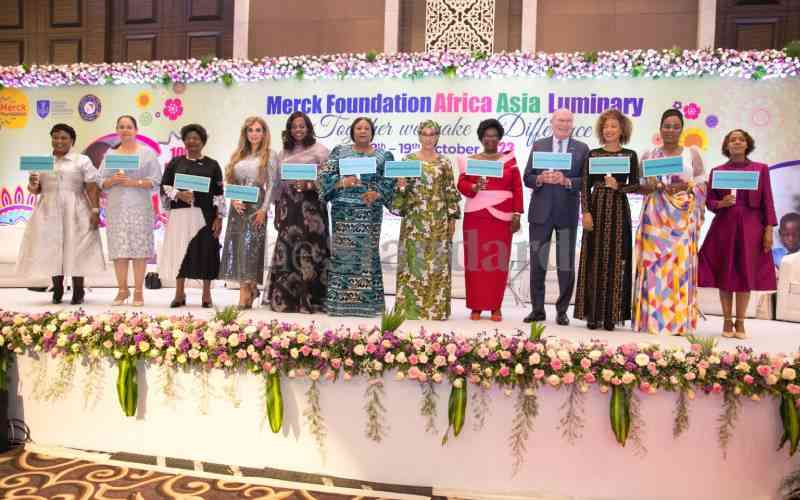×
The Standard e-Paper
Stay Informed, Even Offline

MERCK Foundation CEO Senator, Dr Rasha Kelej, Chairman Executive Board, E. Merck KG and Merck Foundation Board of Trustees Dr Frank Stangenberg-Haverkamp alongside First Lady's from Africa during the 10th Edition of Merck Foundation Africa Asia Luminary in Mumbai, India.
Africa is on course to bear the brunt of the global cancer burden, health experts have warned as new cases crossed the 1.1 million mark and deaths rose to 700,000 annually.